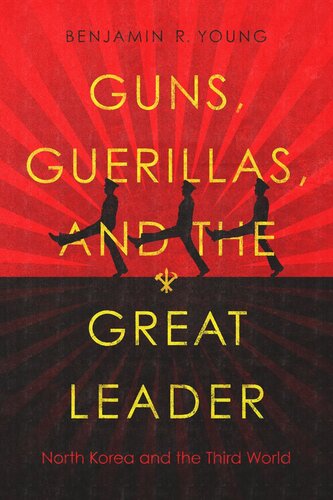

Most ebook files are in PDF format, so you can easily read them using various software such as Foxit Reader or directly on the Google Chrome browser.
Some ebook files are released by publishers in other formats such as .awz, .mobi, .epub, .fb2, etc. You may need to install specific software to read these formats on mobile/PC, such as Calibre.
Please read the tutorial at this link: https://ebookbell.com/faq
We offer FREE conversion to the popular formats you request; however, this may take some time. Therefore, right after payment, please email us, and we will try to provide the service as quickly as possible.
For some exceptional file formats or broken links (if any), please refrain from opening any disputes. Instead, email us first, and we will try to assist within a maximum of 6 hours.
EbookBell Team

4.8
94 reviewsFar from always having been an isolated nation and a pariah state in the international community, North Korea exercised significant influence among Third World nations during the Cold War era. With one foot in the socialist Second World and the other in the anticolonial Third World, North Korea occupied a unique position as both a postcolonial nation and a Soviet client state, and sent advisors to assist African liberation movements, trained anti-imperialist guerilla fighters, and completed building projects in developing countries. State-run media coverage of events in the Third World shaped the worldview of many North Koreans and helped them imagine a unified anti-imperialist front that stretched from the boulevards of Pyongyang to the streets of the Gaza Strip and the beaches of Cuba.
This book tells the story of North Korea's transformation in the Third World from model developmental state to reckless terrorist nation, and how Pyongyang's actions, both in the Third World and on the Korean peninsula, ultimately backfired against the Kim family regime's foreign policy goals. Based on multinational and multi-archival research, this book examines the intersection of North Korea's domestic and foreign policies and the ways in which North Korea's developmental model appealed to the decolonizing world.